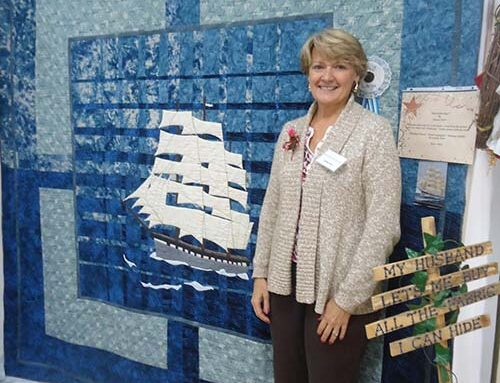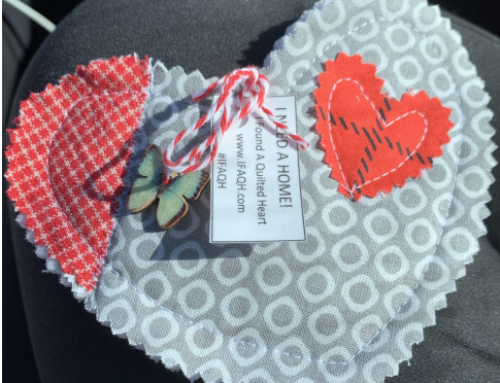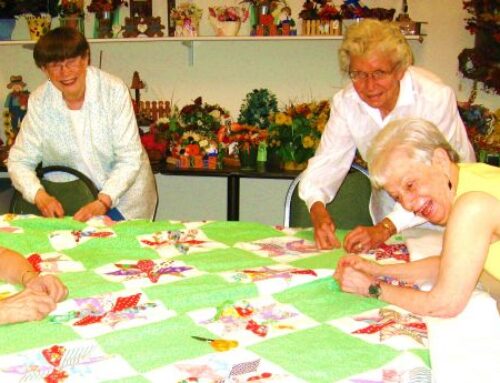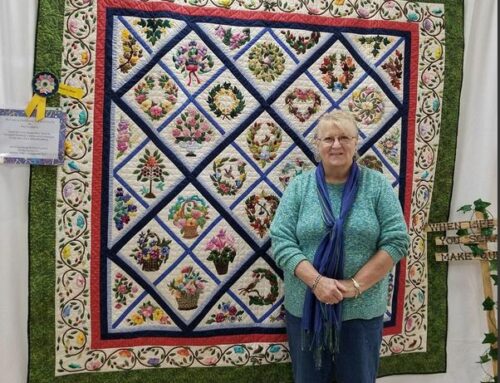Reprinted from the January 2019 newsletter.
Dear QOL,
Research shows that people tend to dwell more on mistakes, short-comings, and failures than on accomplishments and successes. There may be an evolutionary reason why that tends to be true, but the opposite is surprisingly beneficial. Accepting compliments has been shown to increase our actual well-being—even if the compliment comes from ourselves.
I’m sure we have all had this happen. We are admiring someone’s quilt, perhaps at Show & Tell. Several people are commenting on the design, construction, color, and quilting. Compliments abound. Then the quiltmaker herself says something like, “I really messed up THIS part!” and helpfully draws our attention to something she isn’t pleased with.
It’s natural; no one wants to seem like a braggart. But what benefits are we giving away by discounting well-earned recognition? Dr. Teresa Amabile, a professor at Harvard Business School and co-author of “The Progress Principle,” has some answers. By disclaiming recognition, we lose out on major psychological benefits. Her research shows that accepting meaningful praise and recognition boosts our motivation, helps our performance, and even drives our brains to commit new skills to memory. Pretty solid stuff for a quilter!
Can we get better at accepting compliments?
Yes. Say, “Thank you, I appreciate your comment.” After all, a fellow quilter knows what she is talking about. You can also ask a follow-up question. It shows you value the comment-giver’s opinion. In fact, downplaying positive feedback can devalue the other person.
Can you give yourself the recog-ition you’ve earned? Again, yes. According to Dr. Amabile, people feel a sense of elation when they make progress in work that is meaningful to them. Keeping a journal of accomplishments is one way to affirm our progress. Jot down the work you did and give yourself some time to appreciate the effort and the out-come. Your quilt is beautiful. It really is.
And when you’re standing by the Show & Tell rack, and someone compliments you on your project, smile, say thank you, and own it. It is a gift we can give ourselves, and each other, as we head into a new year.
—Susan
To learn more about creativity and Dr. Amabile’s research, visit www.progressprinciple.com.





